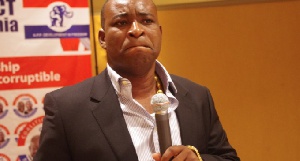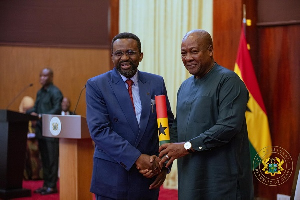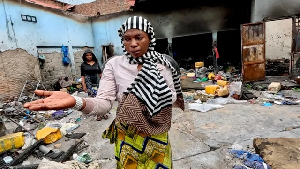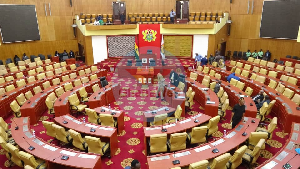Until the biometric voting system is centralized, all the stop guard measures being proposed by political parties on how to maintain a credible voters’ register remains impotent. This was an observation made by the Ashanti Regional Chairman of the New Patriotic Party, Mr. Bernard Antwi- Boasiako.
The Electoral Commission (EC) opened a two-day public hearing on the voters’ register following series of petitions and calls from some political parties, civil society groups and a number of Ghanaians for a new voters’ register.
But Mr. Antwi- Boasiako tells Peacefmonline.com in an interview that he has been following proceedings of the event, and one thing most speakers have forgotten to highlight is the issue of centralizing the biometric system to deter electorates from voting twice during an election.
According to the Ashanti Regional Chairman, who is also known as Chairman ‘Wontumi,' Ghana’s biometric system should be made to work like the banking system which has been programmed to prevent people from cheating the banks.
“Let’s assume you have GHC 200,000 in your account. Should walk into your bank and redraw all of it, it automatically registers in all other branches networked to your mother branch.
You then can’t walk to another branch and claim you have the same money in there. The system has been centralized to prevent people from making false claims”, he said.
Should the EC emulate the banking system, Chairman ‘Wontumi’ is optimistic some electorates would find it extremely difficult to vote twice.
In order to assure a transparent and accountable process for examining and determining the petitions, the EC assembled a Panel of Eminent Ghanaians to chair the two-day public hearing on the issue.
For the benefit of Ghanaians who couldn’t attend but wished to follow the proceedings, the EC ensured the hearings was broadcast live on radio, television and on the internet.
At the end of the proceedings, findings and recommendations of the Panel will be presented to the EC for final decision and communication to the public.
General News of Sunday, 1 November 2015
Source: peacefmonline
Centralized biometric system to stop rigging – Wontumi
Entertainment
















